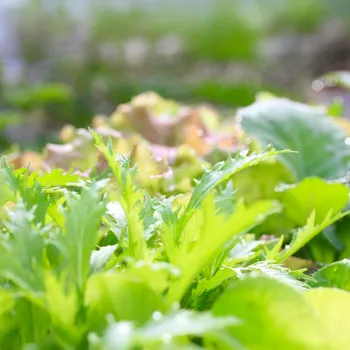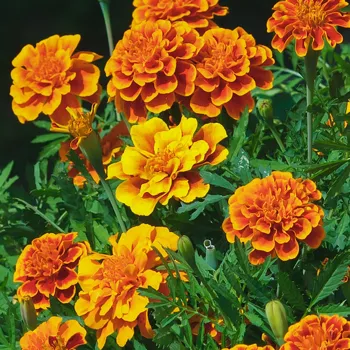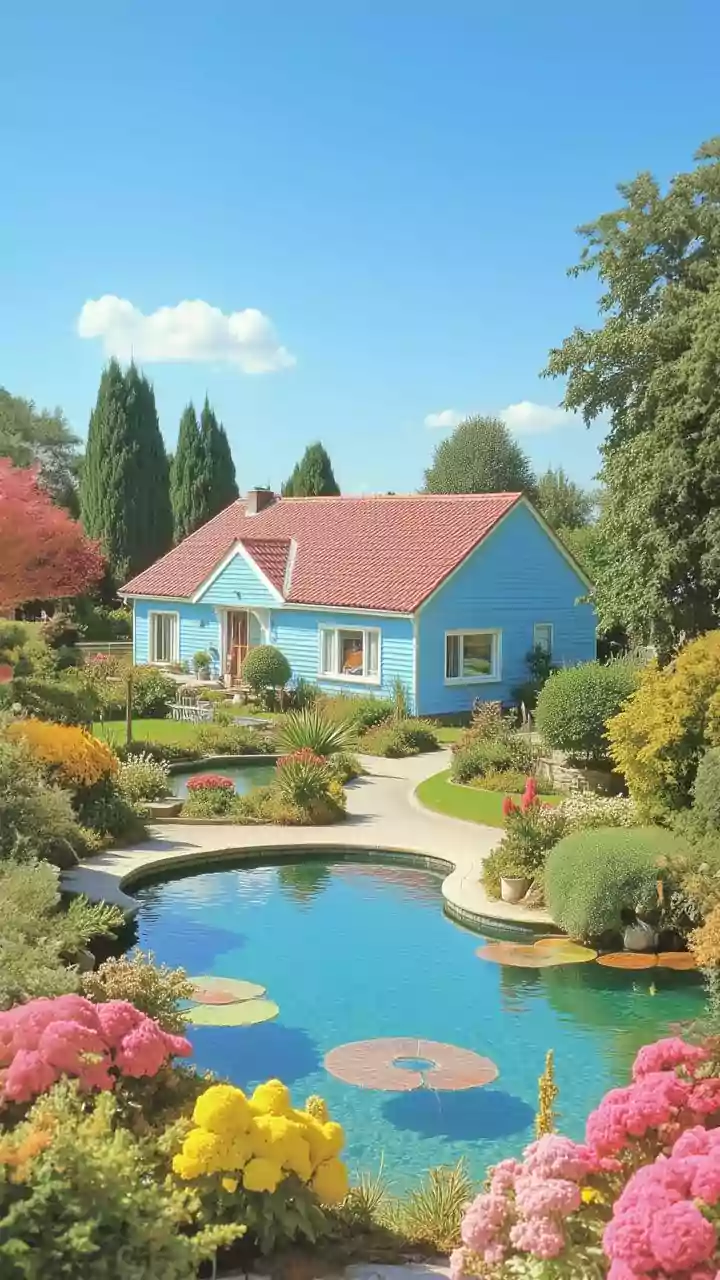Dive into the world of sustainable gardening! Discover 10 practices to transform your garden into an eco-friendly paradise. Start your journey towards a greener lifestyle and a healthier planet. Read more
to unlock the secrets of sustainable gardening!
The rising heat, the unpredictable rains – climate change is no longer a distant threat; it's knocking on our very darwaza (door). And while tackling such a huge problem can feel overwhelming, what if I told you part of the answer lies in your own backyard, literally?
Sustainable gardening is becoming increasingly popular, not just as a hobby, but as a responsible way to grow your own food, beautify your surroundings, and contribute towards a healthier planet.
Forget chemical fertilizers and water wastage; sustainable gardening is all about working in harmony with nature. This means understanding the soil, choosing the right plants, conserving water, and encouraging beneficial insects and organisms.
So, ditch the synthetic stuff, grab your khurpi (gardening tool), and let's delve into ten practices that will transform your garden into a thriving, eco-friendly paradise! It's time we embraced a greener way of living, one sapling at a time.
The benefits are numerous - fresh produce, a beautiful space and contribution to the environment.
Nourish soil, conserve water, plant native species for eco-friendly gardening
First off, let's talk about the foundation of it all: soil health. Instead of relying on chemical fertilizers, nourish your soil with organic compost and manure.

Compost, made from kitchen scraps and garden waste, is like amrit (nectar) for your plants, providing essential nutrients and improving soil structure. Manure, from cows or other animals, adds richness and supports microbial activity. Another crucial aspect is water conservation.
Implement rainwater harvesting techniques to collect and store water for irrigation. This could be as simple as setting up barrels or tanks to capture rainwater runoff. Mulching around your plants helps retain moisture in the soil, reducing the need for frequent watering.
Choose plants that are native to your region. These plants are adapted to the local climate and soil conditions, requiring less water, fertilizer, and pesticides. This makes them naturally more resilient and easier to care for, reducing your garden's ecological footprint.
Start with these simple steps and see the difference it make!
Embrace companion planting for natural pest control and healthy plants
Next, embrace the power of companion planting. This involves strategically planting different species together to benefit each other. For example, marigolds repel nematodes, tiny worms that can damage plant roots. Basil repels flies and mosquitoes and improves the growth of tomatoes.

By understanding these relationships, you can create a natural ecosystem that reduces the need for pesticides. Another essential practice is to attract beneficial insects to your garden.
These insects, like ladybugs and lacewings, are natural predators of pests, helping to keep your plants healthy without the use of harmful chemicals. Plant flowers that attract these insects, such as sunflowers, daisies, and zinnias. Create a shallow dish of water with pebbles for them to drink.
Finally, practice crop rotation to prevent soil depletion and pest buildup. Rotate your crops each season, planting different types of plants in the same area. This helps to balance the soil nutrients and reduce the risk of pest and disease problems.
Remember, gardening is a skill that takes time to master.
Reduce waste, use biodegradable pots, organic pest control, encourage biodiversity in gardening
Reduce waste by composting all your garden waste, including leaves, grass clippings, and vegetable scraps. This creates a nutrient-rich soil amendment that can be used to improve soil health. Avoid using plastic pots and containers in your garden.
Plastic can leach harmful chemicals into the soil and is not biodegradable. Instead, use biodegradable pots made from coconut coir or recycled paper. You can also reuse old containers, such as tin cans and plastic bottles, as planters.
These can be decorated and made into very interesting additions to your garden. Embrace organic pest control methods to protect your plants from pests and diseases. Avoid using synthetic pesticides, which can harm beneficial insects, pollinators, and even humans.
Instead, use natural pest control methods, such as neem oil, insecticidal soap, and diatomaceous earth. Encourage biodiversity by planting a variety of plants in your garden. Plant a mix of flowers, vegetables, herbs, and trees to create a habitat for a wide range of wildlife.
This will help to create a more balanced and resilient ecosystem.
Support local nurseries & farmers markets for sustainable gardening
Supporting local nurseries and farmers markets is an important part of sustainable gardening. When you buy plants from local nurseries, you are supporting local businesses and reducing the environmental impact of shipping plants from far away.
You are also getting plants adapted to your local climate. Farmers markets offer a wide variety of fresh, local produce that is grown sustainably. This promotes healthy eating habits and reduces your reliance on food that is transported long distances.
One of the most satisfying experiences is saving seeds from your own plants to use in the next growing season. You will become self-sufficient and preserve genetic diversity. Saving seeds is a great way to connect with the natural world and to pass on gardening knowledge to future generations.
Sustainable gardening is not about perfection; it's about progress. Every small step you take towards a more sustainable lifestyle makes a difference.
Engage with community, share knowledge, educate on sustainable gardening
Engage with your community and share your knowledge and experience with others. Join a local gardening club or community garden to learn from other gardeners and to share your own expertise. Share your surplus produce with friends, family, and neighbors.
Inspire others to get involved in sustainable gardening by sharing your tips and experiences on social media or in person. It is very important to educate you children and bring forth the gardening culture. They learn about responsibility and also the science of nature.
Make small steps to becoming a responsible and informed member of the society. Remember, sustainable gardening is a journey, not a destination. Be patient with yourself, and don't be afraid to experiment and learn.
With a little effort and dedication, you can create a beautiful and productive garden that benefits both you and the planet. It is more important now than it ever was to contribute to the earth.
Transform your garden into a sustainable haven with simple practices
So, there you have it! Ten simple yet powerful practices that can transform your garden into a sustainable haven. It's about more than just growing food; it's about nurturing life, respecting nature, and contributing to a healthier future for all.
So, roll up your sleeves, get your hands dirty, and embark on this rewarding journey of sustainable gardening. Your garden – and the planet – will thank you for it! Start small and go from garden and soon you will be reaping the rewards.
It does not take any expert training, with a little bit of help and online resources, you could begin your journey right now! Get started today.
AI Generated Content. Glance/InMobi shall have no liability for the content






















